|
X +Y=Z Next week we will discuss "X" and "Y". Today, let's talk about "Z", or the end result. Everyone and everything has a "Z". "Z" can best be described as our greatest want. The world is full of needs and wants. I used to think what we need is greater than what we want. I realize this couldn't be further from the truth. In reality, needs are picked by what we want. Let me give you an example. Jane wants to live. The want is the prime point. For Jane to live she needs to eat, find shelter, and stay healthy. See? The want figures out what the needs are. Let's do it again. John wants to play in the Atlanta Symphony Orchestra. For John to have a chair in the orchestra he needs to purchase an instrument, learn to play it perfectly, audition, and have those doing the audition feel he is better than everyone else who auditioned. We all have lesser and greater wants. Our greatest want is what drives all of our decisions. I think if many were to name what the most common greatest want is, many would name the desire to live. I don't know if that is really the case. I would say there is a struggle between wanting to live, and wanting to be comfortable or happy. When these two (life and happiness) are sold as a package, it can motivate people to do horrendous things. People will sacrifice the life and happiness of others, to maintain their own. This is where I want to seriously look at scripture: 9 “As the Father loved me, I too have loved you. Remain in my love. 10 If you keep my commandments, you will remain in my love, just as I kept my Father’s commandments and remain in his love. 11 I have said these things to you so that my joy will be in you and your joy will be complete. 12 This is my commandment: love each other just as I have loved you. 13 No one has greater love than to give up one’s life for one’s friends. 14 You are my friends if you do what I command you. John 15:9-14 CEB 24 Then Jesus said to his disciples, “All who want to come after me must say no to themselves, take up their cross, and follow me. 25 All who want to save their lives will lose them. But all who lose their lives because of me will find them. 26 Why would people gain the whole world but lose their lives? What will people give in exchange for their lives? 27 For the Human One is about to come with the majesty of his Father with his angels. And then he will repay each one for what that person has done. 28 I assure you that some standing here won’t die before they see the Human One coming in his kingdom.” Matthew 16:24-28 CEB Before I get into how this works within a church or organization, let me suggest something radical that Jesus was the founder of: Jesus wanted us to make God, in the form of Jesus, as our greatest want. If we understand the two texts under the idea of wants and needs, "saying no to themselves" would be replacing our greatest want, with Jesus. This completely alters why and how we do things. Instead of doing something for happiness, we are doing it to keep the Body of Christ healthy and happy. The outcome, when the Body is functioning correctly is health and happiness. Now it should be obvious that the great want a church should always have is Christ. X +Y=Z Z is our greatest want. X and Y are the needs to get what we want. Now here's where things get complicated. We could all agree a church exists to make Z equal Christ. We could also probably agree that all the congregants are there for the same purpose. Here is the hard to hear truth. Not every person is in church for Christ. People go to church for all different reasons. Perhaps they want to get their children in something they feel would be safe. Perhaps they go because it is what they have always done. Perhaps the church is offering something the person can only get if they are a member. Maybe being a congregant is advantageous to the person in some way. For example, a politician might gain poll points for being an active member at a church. Some politicians go to church for the polls, not for Christ. No matter what the reason, their Z is different than Christ. Those people will (mostly unknowingly) try to replace Z with their greatest need. This will derail the healthy transformative process, and break the church. Always. If you are in a broken church it is your job to discover that new Z, why it happened, when it happened, and put the church back on the correct path again. This is what I want you to do this week: Discover if your faith institution has Christ as their greatest want. Try to name your own greatest want. Is it Christ?
About 6-7 years ago Atlanta was flooded. When I say flooded, I mean flooded. Austell was mostly underwater. Six Flags over Georgia was just as bad. The highway next to the theme park had major sections just covered with the Chattahoochee. That much water changes the landscape a bit. Right in front of our townhome the road just washed away. There was only enough space to get our vehicles out of the driveway. In front of my husband's school the entire road was just obliterated. A huge chasm remained where a road used to be. Similar stories were being told all over the West Atlanta area. To remember the epic flood, I grabbed one of the exposed rocks. I keep it on my desk as a reminder of the fragility of it all. When we consider transformation, we often think of the radical kind. It's easy to pinpoint those aching chasms, or new mounds that form overnight. What we don't consider is the ongoing transformation that naturally happens. We don't consider how the Rocky Mountains are slowly transforming into something that will someday look like the Smoky Mountains. Yes, it's going to take thousands upon thousands of years, but it's happening. We don't consider the transformation that happens within the natural growth process. Baby becomes child. Child becomes young adult. Young adult becomes adult. It's only when we are looking at those old pictures we see the transformation. We don't consider it day to day. "Oh, child, you have grown one centimeter today!" Sounds silly, doesn't it? This gets me to my point. Everything in life is in some sort of transformation. Speaking spiritually, every group and person you come in contact with is shaping the future you. You can't help it. Every interaction, even the small ones, are affecting you in at least a small way. All those small, and not so small changes add up to a transformation you might not realize until years later. If we want to move the church towards healthy transformation, we must first understand the transformation that has already taken place. Follow these steps, and comment on Facebook or Reddit:
It is time to get super intentional. Over the next few months we are going to look deeply into new church planting. After all, this is a new church plant. Our first journey is to look at the deceptively loaded sentence: "It doesn't mean something unless it transforms you." This is what I'd like you do do:
(I'd like to thank Rob Lester. He donated an older version of Illustrator. I used it, in conjunction with Photoshop for this image. I'd also like to thank "Just Some Weird Guy," "Duchess of Shoofly," "Anonymous," and Kimberly Russell for donating money for the domain name. I know who you are. :) I'd also like to thank Jessica Nettles and Amanda Bales for helping look into cheaper domains. Finally, thank you for all the support throughout the years from everyone. Everybody makes this possible.)
Have you ever had your life completely fall out from under you on a beautiful day? Maybe you lost a loved one, or your job, or had your understanding of life completely shattered. Or maybe it was something more subtle – perhaps another battle in the war against your personal demons. Perhaps even it was because someone else hurt you deeply. Whatever the case, it leads to one of the most surreal experiences life has to offer. Inside your world is crumbling, yet as the sun shines down on your face and a slight breeze wafts by, you feel a strange sort of conflict – as though the weather is somehow inappropriate, as though life ought to be like a movie and bad things should only happen on grim, overcast days. And there's something impossibly strange about feeling that way. We become a bit mixed up, as the natural good mood that the weather provokes becomes entangled with the hurt and despair that mires us down, and all of a sudden we're stuck with some sort of strange sense that our words fail to express. The human experience is often paradoxical. A paradox is often thought of as being the same as a contradiction, but there is one important difference: A paradox is when you have two or more contradictory statements that are nonetheless both true. This is a core part of what it means to be human – not only are we capable of two contradictory emotions (like, for example, happiness and sadness) but we are capable of feeling both at the exact same time. This is one of the reasons why I find Christianity to be so existentially compelling: Paradox is at its very core. It is the story of the fully divine become fully human; the Infinite become finite; that which is undying suffering death; that which is dead knowing life. It is in the message of Christianity that we see these notions reflected, for the Christian life is a call to neither joy nor suffering, but rather both at the same time. More than that, it reflects our own experiences. It does not offer us pat answers - “When you are sad, just be happy!” and the like – but instead meets us where we are and speaks to our core nature. It takes us and shows us that there is beauty in ugliness – and often ugliness in beauty (after all, what better candidate is there for paradoxically being beautiful and ugly at the same time than the crucifixion of Christ?). It shows us that at the height of our despair, there is always reason to rejoice – and that at the height of our joy, there is often reason to mourn. It is the triumph of light over darkness, but also the acknowledgement that darkness has not left us unscathed. This may seem like a bit of a strange post, but I think it's something that's important to grapple with. As Christians, too often we try to take the paradox out of our faith, to instead scrunch it into neat little boxes that fit a linear logical progression. But in doing so, not only do we taint the message of the faith, but we end up missing the powerful personal connection that this message contains. We dodge away from the difficult and harsh truths of life and instead replace them with a sort of Sitcom Faith, where every problem can be neatly resolved and hugged out within twenty-two minutes if only we pray enough or read the Bible enough or have enough faith. We perhaps become so embroiled with seeking to present a faith that brings joy that we neglect the nuance of Christ's teachings, and as such we end up presenting a belief that feels shallow and unrealistic to others, and that stifles our own flame of faith. The Christian life calls us to rejoice, yes – but it also calls us to “mourn with those who mourn,” as it were. In other words, it calls us to paradoxical living, where mourning is a form of joy; where we acknowledge that Christ has triumphed over sin and darkness but do not thereby turn a blind eye to these things, but rather face them head-on. Look, I'm gonna level with you: I have no idea how you might apply this idea. Maybe it'll help you navigate the tension of finding joy when your life is hell, or conversely remembering the sorrow of others when your life is pretty awesome. Hopefully it'll bring some sort of encouragement to anyone who feels trapped by paradoxical experiences. Maybe you'll read this and think “How bloody useless. What a waste of time.” But whatever it is, I ask you to please think about it. --- Ryan Killeen is a seminary student at McMaster University. When he's not vainly attempting to contribute to academia, he can usually be found playing guitar, reading, or typing rubbish on the internet. We would love to hear from you. There are several ways to communicate and connect:
Join Fig Tree's Subreddit Follow our Pinterest page Like us on Facebook Follow us on Twitter |
Categories
All
Archives
October 2023
|


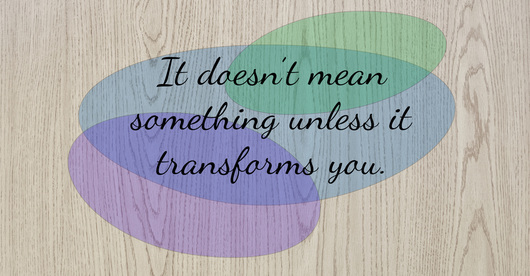
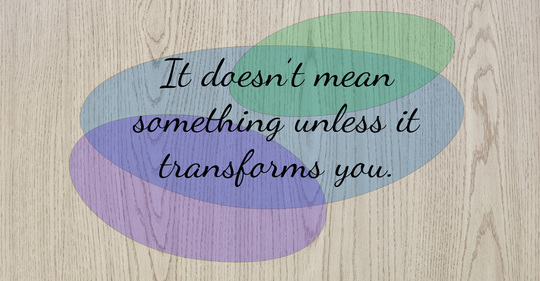

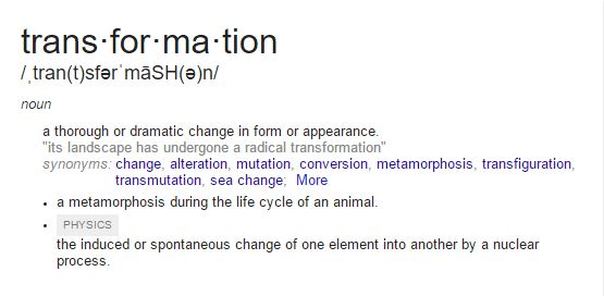
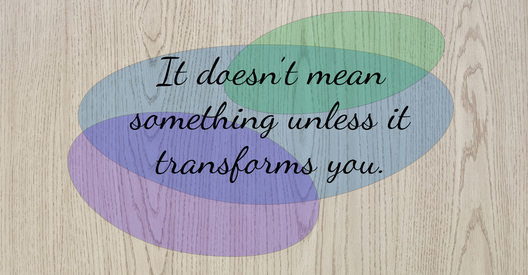
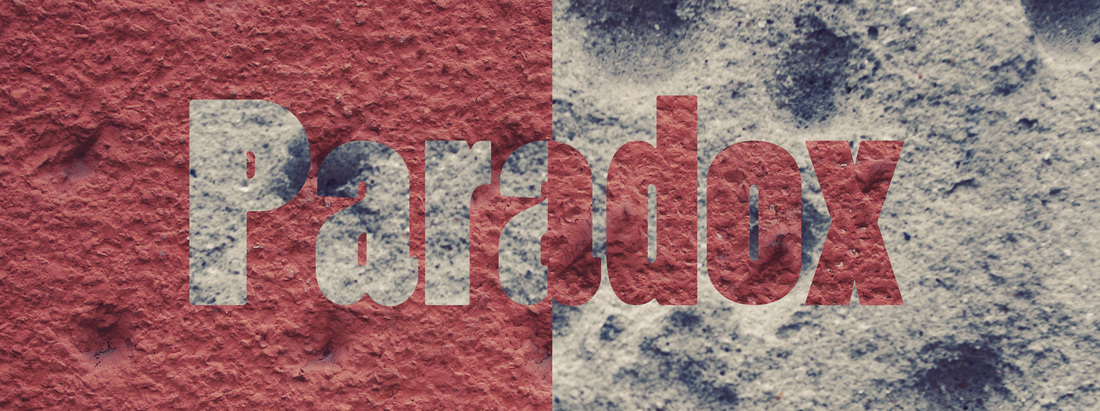

 RSS Feed
RSS Feed